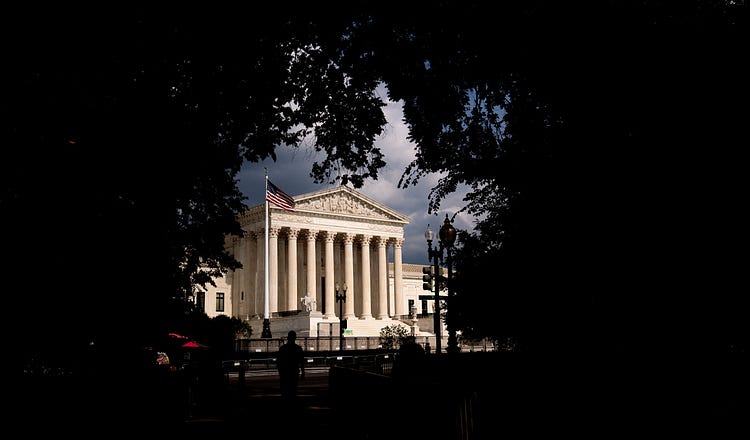The Post-Roe Era Begins

(Photo by Stefani Reynolds / AFP via Getty Images)
Political and practical questions in an America without a constitutional right to abortion.
1,148
We knew it was coming and yet it still feels like a shock. Yesterday the Supreme Court overturned Roe v. Wade, eliminating the constitutional right to an abortion.
I spent the day reading through the 6-3 decision in Dobbs v. Jackson Women’s Health Organization and trying to tune out the noise on Twitter, though it’s hard. I saw on social media that gay m…
Continue Reading The Free Press
To support our journalism, and unlock all of our investigative stories and provocative commentary about the world as it actually is, subscribe below.
$8.33/month
Billed as $100 yearly
$10/month
Billed as $10 monthly
Already have an account?
Sign In


